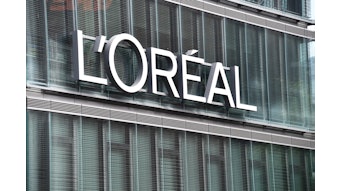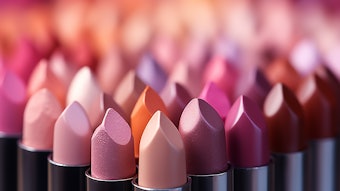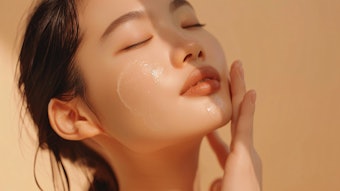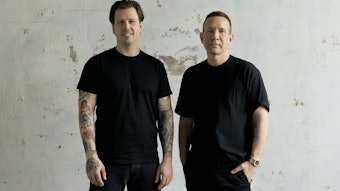Men’s products have been slowly emerging and testing the waters during the past 25 years, and with the advances made in skin treatment and new efficacious ingredients available, more men are using products that maintain healthy skin. There was a time when a rugged, alcohol-based aftershave was the only acceptable product. While growth in men’s products has not burgeoned as projected in the mid-2000s, it is still making strides.
Years ago, I debated with Bernie Mitchell, the founder of Jovan, about turning the rage of women’s musk oil into a man’s after-shave lotion. “No,” he said. “I am afraid of entering the men’s fragrance market, where American men only accept a Brut, Old Spice, English Leather, Aramis or Paco Rabanne. Men have to be comfortable with a tried-and-true fragrance and have an aversion to fussy fragranced men’s toiletry products.” However, the overnight success of the men’s fragrance that was launched forced us to extend the line into grooming aids, and it is still going strong today.
Fast-forward to today’s stage of personal care products’ evolution and the explosion of men’s fine fragrances, and there is a distinct division occurring in the intent of product functions that determine the strength and character of the fragrance. What started as line extensions of signature fragrances such as Givenchy Gentleman, Paco Rabanne, Polo, Armani and Calvin Klein became grooming aids to add to the fragrance experience. But now there is a whole new generation of men’s skin care products that require a different type of fragrancing. These product lines are still limited in many department stores, where they are usually found in the women’s cosmetic section, but mass marketers are also now entering the field through drugstores and mass chains, hoping to expose male customers to new products designed for them.
Looking good is no longer just a clean shave and an after-shave lotion. A plethora of new formulas for skin moisturization, line smoothing, acne treatment, skin plumping and color enhancement—as well as everyday products such as deodorant, shampoo, soap and body washes—demand a new approach to fragrancing, including sometimes no fragrance Many of the major players have designed men’s specialty lines, such as Lauder’s Lab Series Skincare For Men and offerings from Clinique, that are serious skin products that use no fragrance.
Positioning Impacts Scent
There seems to be a correlation with the positioning of products and the type of fragrance used or whether the product is fragranced at all. Often, if a derma or doctor brand uses fragrance, it is often naturally derived plant and fruit extracts. In some cases, if the formula contains ingredients with off-notes that have to be masked, masking is done with naturals that are subtle and clean-smelling.
For Zirh’s product line, the theme is clean, correct and protect using alpha hydroxyl acids, a blend to correct pH balance, and a protective vitamin E and avocado oil combo for moisturization. The fragrances are nondescript or nonexistent, with menthol and lavender used in the face wash and no fragrance in the moisturizer.
DermaDoctor claims fragrance-free products and uses natural leaf extracts such as green tea leaf, willow bark, nasturtium and grape seed extract. Perricone MD is also fragrance-free; its products’ only scent is of the natural ingredients. Fragrance-free Murad products utilizes sophisticated ingredients such as retinyl palmitate and hyaluronic microspheres, along with glucosamine, lipo-amino acid and the brand’s patented Durian Cell Reform.
Part of Daily Grooming
As men become more appearance- and health-conscious, it is likely many more skin treatment products will become a daily part of their grooming, and when it comes to seriously treating their skin, most men will opt for no fragrance—or possibly something subtle to subliminally enhance the function of the product. When they want to project the fragrance experience into their grooming and treatment products, they will choose a scent that suits them and perhaps buy product line extensions such as after-shave balm or a deodorant stick.
The major players are well aware of these inclinations and are expanding their men’s line offerings accordingly. Unilever, for example, introduced a new men’s line called Dove Men + Care, which features face and body washes and bar soaps. The line also is a natural extension of the Dove bar soap that focuses on moisturization (as well as being a well-accepted brand), and is lightly fragranced, with customer testimonials noting the “manly” scent and being generally positive on the fragrance. Additionally, P&G’s recently acquired Art of Shaving products use lavender, sandalwood and lemon essential oils to fragrance classic formulas. The brand is definitely minimalist in its scent approach, yet very masculine.
The Yin and Yang
Men’s fine fragrance launches are primarily designer-driven, and many designer brands have launched strong woody-spicy-mossy types and contrasted them with a lighter, fresher citrus, outdoors types. This is apparent in two Tom Ford launches: Tom Ford for Men is heavy, mossy, full-bodied and “outdoors;” Grey Vetiver features galbanum and vetiver notes. Versace’s Man Eau Fraiche is a lighter fragrance, as is L’ Homme by YSL, which is a light citrus with clean and fresh woods, but stronger men’s fragrances still pervade, as seen in the recently introduced Paco Rabanne 1 Million, which is the antithesis of light and fresh with its robust woods, amber, moss and spice scent.
Some years ago, Unilever’s Axe line made a huge splash with its powerful spicy, woody, fougere fragrance. It was promoted on college campuses with samples of aftershave, talc, deodorant and soap, with the fragrance reinforcing the function of the products. Unilever is said to be launching a new Axe fragrance that is toned down with cleaner, fresher citrus notes.
As men’s care continues to evolve, approaches to fragrancing these products surely will as well, but it remains clear that subtlety and reinforcement of product function take priority in men’s care.
Nancy C. Hayden is a chemist and a pharmacist with more than 30 years in the fragrance industry. She worked as a nose for Jovan from the company’s beginnings and as fragrance director for Jovan Beecham until 1988. Currently, she is a consultant to the fragrance and cosmetics industries.










